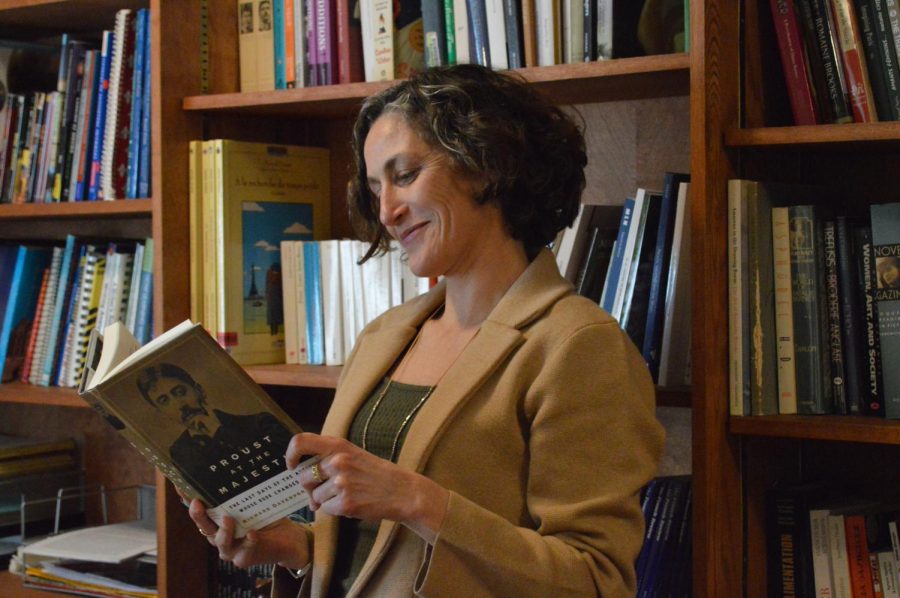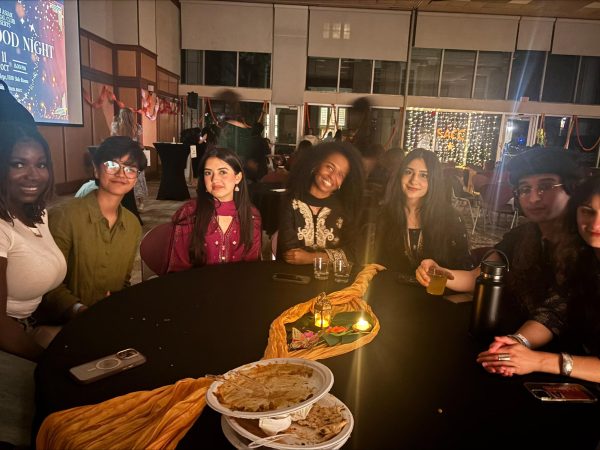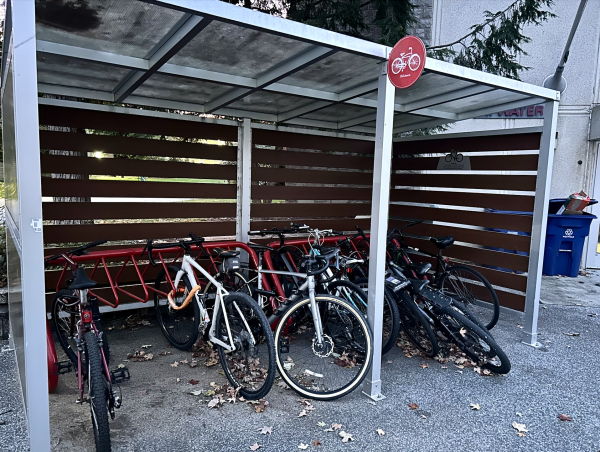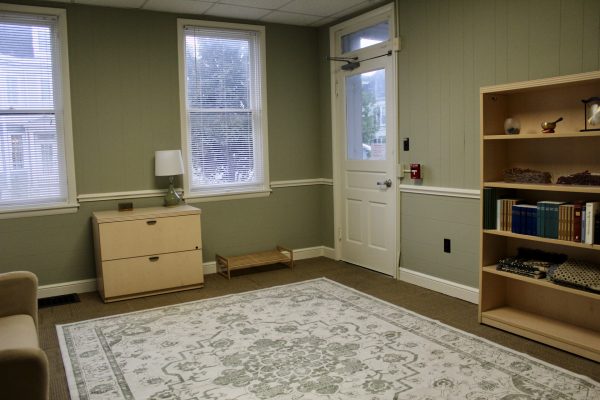Professor Adeline Soldin: French Studies and Trying Everything
Though Professor Adeline Soldin is in the French & Francophone Studies department, it is easy to see that the liberal arts mantra of trying everything and anything that sounds interesting is not limited to Dickinson’s students, whether it range from sexuality studies to food studies. The Dickinsonian sat down for an interview with Soldin:
What are the basics of introducing “language culture literature” in French?
“The WGSS (Women’s, Gender & Sexuality Studies) came really through my research, from focusing on Proust, who was a gay man writing a lot about sexuality and gender, and then being also interested in a lot of women writers that are contemporary to Proust.
“The food studies came about through personal life experiences and interests, as an [undergrad] I spent a year in France and got more interested in food, culture and wine, and while I was an undergrad I started working in a wine shop. I think I was first hired to make bows for Christmas, from there I continued to take an interest in food related, wine related topics. Around the time I was graduating undergrad I spent a semester doing WOOFing (working with World Wide Opportunities on Organic Farms) mostly in southwest France. I worked in a vineyard and then on a chestnut farm, and during graduate school I was working in wine shops and gourmet épicerie kinds of things in Portland, developed an interest in food developed in parallel to my more research interests, so when I interviewed at Dickinson they were in the process of getting the food certificate going and I thought it would be really interesting.”
How did you get to French?
“I took French starting in middle school and all through high school, and kind of knew I wanted to continue with it. I was exposed to ‘Les Misérables’ and ‘Rhinocéros’ in high school. As an undergrad, I majored in French and Business, but the French side was really what I was passionate about. My senior year of college we read the first section of ‘À la recherche des temps perdu’ by Proust and I just really loved it. And then, after school, while I was working in wine shops and not really knowing what I was doing with myself, traveling back to France and teaching English there, I just continued to read Proust. It was a very meandering path, I thought ‘maybe I’ll do my masters and write my masters on Proust. Okay maybe I’ll do a PhD.’”
What is it about Proust?
“I think that he speaks to the human experience, I mean as much as my life is so different than Proust, I still feel I can relate to things he talked about because they are human emotion, jealousy, fear, basic human emotions and social experiences like how you view yourself and how other view you, questions I’m interested in I guess.
“I am finalizing my book manuscript on Proust, “Snobs, Inverts, and Jews: Performing and Subverting Identity in Proust’s ‘La Recherche.’”
How do environmental issues work in combination with academia?
“I think it comes naturally at Dickinson because we kind of have an ethos of integrating sustainability and questions around sustainability into our coursework. I used to jump out at intersections and pick up trash in high school, it’s always been something that I’ve been concerned about and made efforts to do my small parts.
I feel like French and Francophone majors can kind of do whatever they want cause you are learning about communication, you’re learning about a lot of things that are applicable to many other things. I don’t feel like the field of French and Francophone Studies is narrow. You can approach French and Francophone Studies from so many different angles I guess is what I’m getting at.”
What do you think about the change in curriculum?
“It was really exciting, we had been talking about it for a long time, of course the pandemic interrupted things. It was exciting to rethink the curriculum in a way that would bring the rest of the Francophone world into the conversation, and also to get students to learn about more places outside of France and outside of Europe, it was the decolonizing of the curriculum but also thinking about how our curriculum fits into our students’ interests. Some of the courses are trying to draw on other strengths at Dickinson and in the department like food studies, the environment, politics, immigration, drawing on things we think our students and faculty have more of an interest in and making them more of a focus in the coursework and hopefully getting students to see a connection with life outside of Dickinson and where a French and Francophone studies degree might be useful in their careers and professional interests and goals.”
What can language do for students?
“It can open up the whole world, literally. Specific language skills, intercultural competence skills, and just a better kind of understanding of how people think differently in different places and how people might approach the same problem in a different way. When people come to me and they say ‘what can I do with a French and Francophone Studies major?’ I say, ‘what do you want to do, because really I think it can be applied in any way.’”








